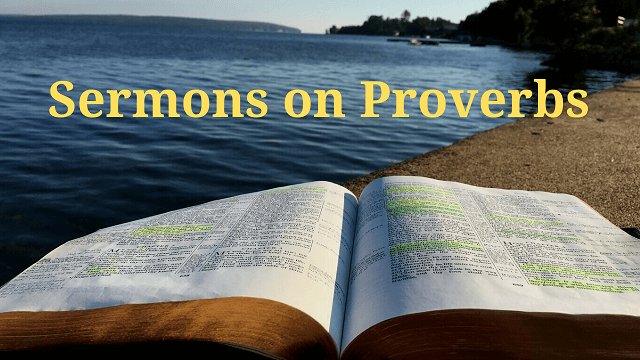Proverbs 11:2 (Mini Sermon)
Submitted by Pastor Chad Wagner on Wednesday, December 14, 2022.


2. Pro 11:2 – "When pride cometh, then cometh shame: but with the lowly is wisdom." A. When pride cometh, then cometh shame: i. Definitions a. Pride n. – B. The quality of being proud. I. 1. a. A high or overweening opinion of one's own qualities, attainments, or estate, which gives rise to a feeling and attitude of superiority over and contempt for others; inordinate self-esteem. b. Shame n. – I. 1. a. The painful emotion arising from the consciousness of something dishonouring, ridiculous, or indecorous in one's own conduct or circumstances (or in those of others whose honour or disgrace one regards as one's own), or of being in a situation which offends one's sense of modesty or decency. c. In other words, when a man adopts a high opinion of himself, his attainments, or his estate and feels superior to others he will experience the pain of being dishonored, ridiculed, and disgraced. ii. The proud will be ashamed (Psa 119:78). iii. Proud men will not receive instruction and will therefore be brought to shame (Pro 13:18). a. It is dishonoring to experience failure, injury, or poverty due to being too proud to accept instruction or correction from others. b. A man's pride will bring him low (Pro 29:23). iv. Those who think highly of themselves will be brought to shame in social settings. a. Those who sit in a lofty place at a wedding or other special event will be ashamed when they are asked to move to a lower seat (Luk 14:8-9). b. Those who exalt themselves shall be abased (Luk 14:11a). v. Honor, which is the opposite of shame, comes through humility which is the opposite of pride (Pro 15:33; Pro 18:12). a. Those who humble themselves shall be exalted and lifted up by God (Luk 14:11b; Luk 18:13-14; Jam 4:10). b. Whosoever humbles himself and believes in the Lord Jesus Christ will not be ashamed (Psa 25:20; Rom 10:11). B. but with the lowly is wisdom. i. Definitions a. Lowly adj. - 1. Humble in feeling or demeanour; not proud or ambitious. b. Humble adj. - 1. Having a low estimate of one's importance, worthiness, or merits; marked by the absence of self-assertion or self-exaltation; lowly: the opposite of proud. c. Wisdom n. – 1. a. Capacity of judging rightly in matters relating to life and conduct; soundness of judgement in the choice of means and ends; sometimes, less strictly, sound sense, esp. in practical affairs: opp. to folly. d. In other words, those who have a low estimate of their own importance, worthiness, or merits and do not assert or exalt themselves will have sound judgment and will make good decisions in life. ii. The contrasting conjunction but reveals that the proud do not have wisdom. a. Of course the proud think they have wisdom because they think highly of themselves. b. They are wise in their own eyes and thoughts (Pro 26:12; Isa 5:21). c. Those who think they are wise and tell others so are in truth proud fools. d. They know nothing (1Ti 6:4) despite their high opinion of their supposed wisdom. iii. A man will not be truly wise until he humbles himself and doesn't think he is wise (1Co 3:18). a. Those who think they know a lot know nothing they ought to know (1Co 8:2). b. A fool who thinks himself wise is self-deceived (Gal 6:3). c. To become wise, you must be "little in thine own sight" (1Sa 15:17). d. A wise man doesn't tell others he is wise. e. Those who have wisdom don't tell others they have wisdom. iv. The humble and lowly have wisdom because they are wise enough to know themselves (Pro 14:8). a. But they are not full of themselves (Pro 18:2). b. They are wise enough to understand their own fallen nature and limitations. c. They know that they are nothing without God and that they could know nothing apart from God's grace (1Co 15:10). d. They know that without Christ they could do nothing (Joh 15:5). v. The ultimate example of a lowly man who was full of wisdom was the Lord Jesus Christ. a. Jesus was meek and lowly (Mat 11:29). b. Yet He was wiser than Solomon (Mat 12:42).
| Attachment | Size |
|---|---|
| Proverbs 11.2.mp3 | 28.0 MB |
